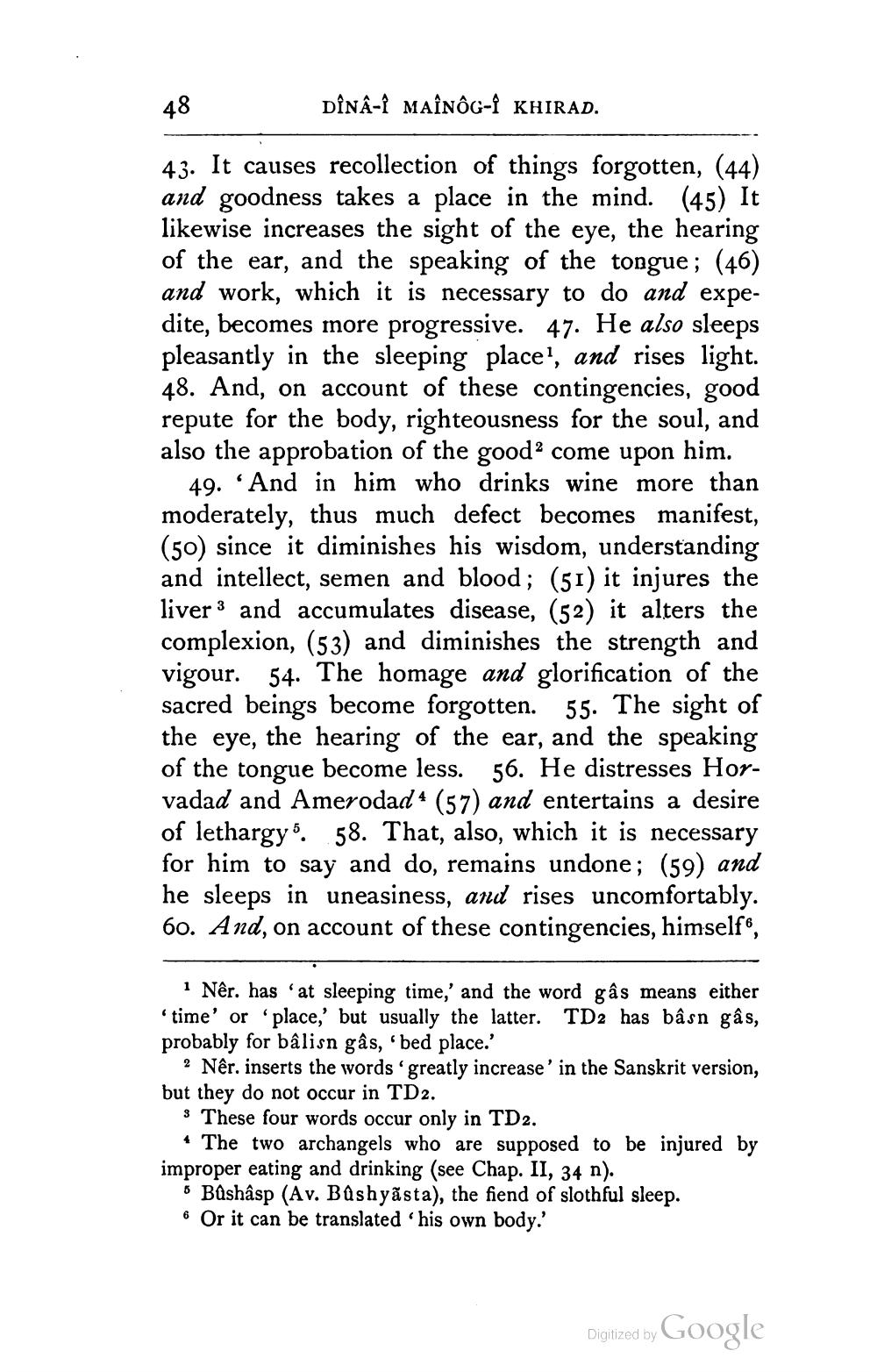________________
48
DÎNÂ- MAÎNÔG-I KHIRAD.
43. It causes recollection of things forgotten, (44) and goodness takes a place in the mind. (45) It likewise increases the sight of the eye, the hearing of the ear, and the speaking of the tongue; (46) and work, which it is necessary to do and expedite, becomes more progressive. 47. He also sleeps pleasantly in the sleeping place', and rises light. 48. And, on account of these contingencies, good repute for the body, righteousness for the soul, and also the approbation of the good come upon him.
49. 'And in him who drinks wine more than moderately, thus much defect becomes manifest, (50) since it diminishes his wisdom, understanding and intellect, semen and blood; (51) it injures the liver 3 and accumulates disease, (52) it alters the complexion, (53) and diminishes the strength and vigour. 54. The homage and glorification of the sacred beings become forgotten. 55. The sight of the eye, the hearing of the ear, and the speaking of the tongue become less. 56. He distresses Horvadad and Amerodad 4 (57) and entertains a desire of lethargy5. 58. That, also, which it is necessary for him to say and do, remains undone; (59) and he sleeps in uneasiness, and rises uncomfortably. 60. And, on account of these contingencies, himself,
Nêr. has 'at sleeping time,' and the word gâs means either time' or place, but usually the latter. TD2 has bâsn gâs, probably for bâlisn gâs, bed place.'
? Nêr. inserts the words' greatly increase' in the Sanskrit version, but they do not occur in TD2. 3 These four words occur only in TD2.
The two archangels who are supposed to be injured by improper eating and drinking (see Chap. II, 34 n).
o Bashâsp (Av. Bushyāsta), the fiend of slothful sleep. 6 Or it can be translated his own body.'
Digitized by Google




